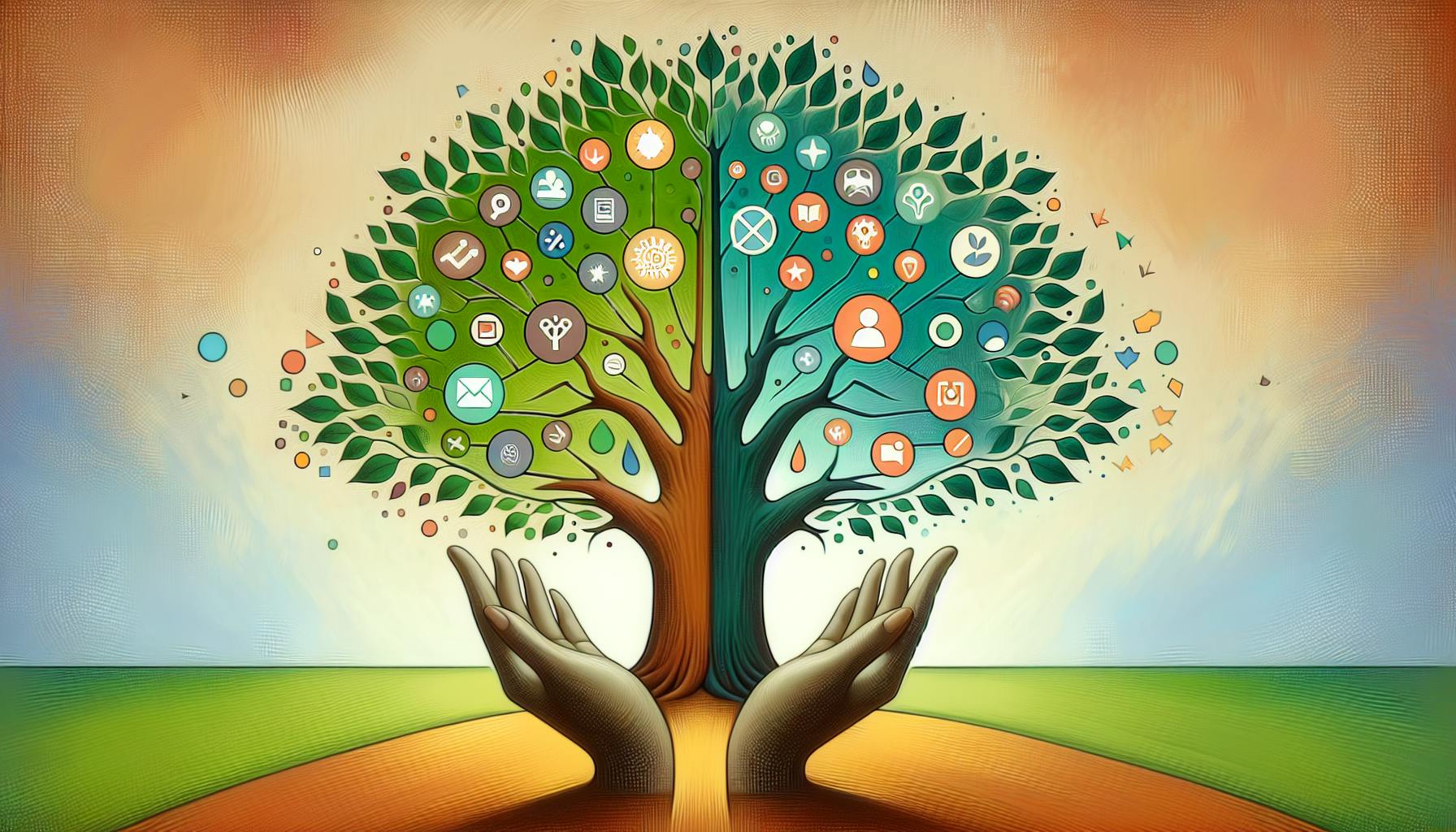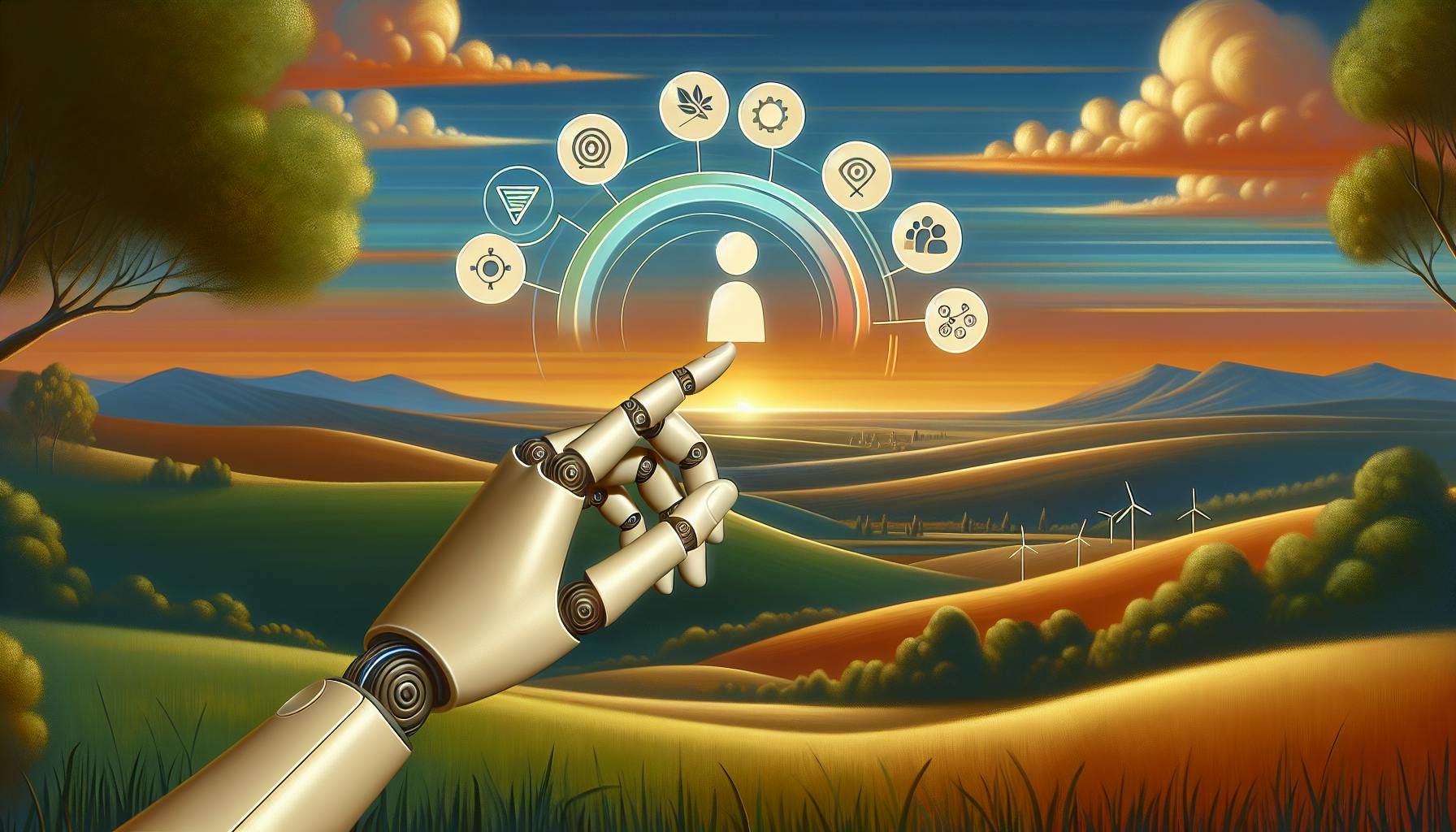Introduction
The rise of chatbots and conversational AI has changed how companies engage with customers. However, many chatbots still use generic, scripted responses that fail to deliver truly personalized experiences. Studies confirm that customers desire and better respond to personalized interactions that make them feel valued. This is where chatgpt-personalization-guide/">custom chatbots powered by generative pretrained transformers (GPTs) like ChatGPT come in. By training GPT models for specific use cases and fine-tuning them to individual needs, businesses can provide tailored conversational experiences that deeply connect with each customer.
In this article, we’ll examine the constraints of one-size-fits-all chatbots and the necessity for more personalized conversations. We’ll then explore how custom GPT chatbots can be optimized through specialized training and fine-tuning to enable nuanced, individualized interactions. With the right approach, brands can leverage custom ChatGPT agents to increase customer satisfaction, engagement, sales, and loyalty by making every conversation feel like a personalized human interaction.
The Need for Personalized Interactions
Generic conversations following rigid scripts fail to forge true connections with customers. Study after study confirms that today’s consumers desire personalized experiences demonstrating understanding of their unique needs and preferences.
Personalized interactions make people feel valued as individuals. They convey that a brand truly cares about catering to each customer meaningfully. This results in higher satisfaction, stronger engagement, increased sales, and improved loyalty.
Conversely, formulaic interactions frustrate customers and erode trust in a brand. When conversations consistently feel transactional rather than relational, people tune out and switch to competitors who will treat them like human beings, not robotic chatbots.
Personalization in Customer Service
In customer service, personalization is vital for building trust and addressing the specific needs of each customer. Tailored interactions based on purchase history, past issues, communication style, and other factors demonstrate a brand’s effort to understand and assist each customer individually. This increases satisfaction, retention, and loyalty.
Generic customer service feels transactional and fails to provide the thoughtful guidance each situation demands. It treats all customers identically rather than solving their unique issues, transforming helpful interactions into frustrating experiences.
Personalization in Marketing
Similarly, personalized marketing content and offers vastly outperform generic, spray-and-pray campaigns. When messaging resonates at an individual level, it shows a brand comprehends its customers and aims to deliver relevant value.
Personalized emails, ads, recommendations, and outreach capture attention better and drive more sales. Customers engage more when content and offers feel tailored for them.
Generic blasts fail to register in an increasingly personalized world. People disregard irrelevant messaging misaligned with their needs and interests. Personalized communication is essential for marketing results.
Limitations of Generic Chatbots
Most chatbots rely on generic question-answering and limited scripts that fail to enable truly personalized conversational experiences. Their one-size-fits-all responses may be somewhat useful for simple queries but fail to build meaningful relationships.
Without the capacity to grasp nuance and adapt to individual needs in real time, chatbots struggle to maintain conversational flow or connect on a human level. Their repetitive scripted responses lack the contextual relevance to fully engage users.
Lack of Contextual Understanding
Generic chatbots lack true comprehension of ongoing conversations and therefore struggle to maintain contextual relevance. They cannot latch onto contextual clues, understand subtext, or fill conversational gaps like humans.
This severely restricts their ability to sustain in-depth, back-and-forth discussions. Without inferring meaning from context, chatbots derail conversations by responding solely based on keywords without appreciating nuance.
For example, when asked for movie suggestions, a context-devoid chatbot may suggest violent horror films after a user simply said they enjoy thriller/mystery movies. This inappropriate response stems from matching keywords without contextual understanding.
Inability to Adapt to Individuals
Additionally, typical chatbots provide identical scripted responses to every user regardless of unique personalities, needs, and communication styles. Their conversations follow rigid tracks rather than naturally adapting to each individual.
This one-size-fits-all approach fails to establish genuine connections. People want conversations flexibly tailored to their preferences and quirks, not just generic interactions.
Truly conversational AI requires adapting to each user's unique communication style and tone to resonate on a human level. Without personalization, chatbots will continue to disappoint.
Custom GPTs for More Personalized Chat
Custom chatbots powered by generative pretrained transformers like ChatGPT enable more nuanced, personalized conversational experiences.
By training GPT models on specific use cases then fine-tuning them to individuals, businesses can deliver tailored interactions that feel genuinely human.
Trained on Specific Use Cases
The key is training custom GPT chatbots focused on particular niche applications rather than attempting broad general-purpose conversations.
When equipped with specialized data for domains like customer service, sales, education, healthcare, and more, GPT chatbots can converse contextually about their specific use case. This facilitates in-depth, personalized interactions impossible for generic chatbots.
For example, a custom GPT chatbot trained on electronics troubleshooting data can hold detailed and helpful conversations about diagnosing and fixing gadget issues.
Fine-Tuned for Individual Needs
In addition to specialized training, custom GPT chatbots can be iteratively fine-tuned to adapt their style and responses to individual personalities and preferences.
This enables them to adjust their conversational patterns to resonate with unique individuals. The more they interact with a person, the better they mirror that person's specific communication style and tone.
Combined, focused training and individual fine-tuning empower custom GPT chatbots to provide the nuanced, tailored conversational experiences customers desire.
Use Cases for Custom GPT Chatbots
When optimized for specialized use cases then personalized to individuals, custom GPT chatbots enable new possibilities for conversational AI across diverse verticals:
Customer Service
Customer service GPT chatbots can provide personalized purchase recommendations, thoughtfully guide users through issues, and adapt their tone to build trust based on cues from each customer.
This significantly improves service compared to frustrating one-size-fits-all customer service chatbots. Specialized customer service GPTs increase satisfaction and loyalty.
Sales and Marketing
Sales-focused GPT chatbots excel at tailoring product recommendations and conversational commerce experiences to customer needs. They can also personalize cross-sell / upsell recommendations and other marketing messaging to deeply resonate with each individual.
Education
Education GPT chatbots can serve as tutors that adapt their teaching style to student needs. They can personalize learning paths, explanations, examples and more based on each student's abilities, learning styles, and interests.
For example, a math tutoring chatbot can use different visualization techniques, real-world examples, and explanation methods tailored to how each student best understands math concepts.
Healthcare
Healthcare GPT chatbots can engage patients in personalized conversations about symptoms, treatments, medication, lifestyle changes and more. They can adapt conversations to individual needs and communication styles.
And many more use cases abound. The key is specialization and personalization.
Getting Started with Custom GPT Chatbots
Want to experience the power of personalized conversational AI for your business? Here are some tips:
Key Providers and Marketplaces
Leading custom GPT vendors like Anthropic, Character.ai, and others enable easy training and deployment of specialized chatbots. Gumroad, BotMart and other marketplaces also offer pre-trained GPT chatbots for diverse use cases.
We recommend trying free trials before purchase so you can evaluate quality firsthand. Since this is an emerging space, focus on providers with proven training approaches.
Implementation Tips
Start with a narrow, well-defined conversational use case rather than attempting broad general purpose chat right away. Invest in high quality training data closely matching your chosen niche.
Fine-tune iteratively with small groups of real users to adapt the chatbot's style and responses before full deployment. Use their feedback to maximize personalization.
Set up ongoing feedback loops. Continual fine-tuning is vital for optimizing personalized conversational experiences over time.
Conclusion
Generic one-size-fits-all chatbots cannot deliver the tailored, nuanced conversations today's consumers expect. In contrast, custom GPT chatbots optimized for specific use cases then personalized to individuals enable natural, human-like conversations.
As shown in this article, specialized GPT chatbots present a revolutionary opportunity to increase customer satisfaction through personalized conversations deeply resonating with each individual. The time has come to embrace conversational AI that feels like a trusted friend, not an artificial bot.


